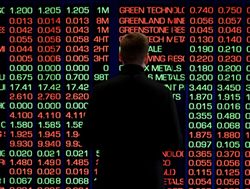Cameron Micallef* says there are several things investors need to consider when moving to make or keep their investment portfolios environmentally friendly.

Image: Gerd Altmann
Responsible and ethical investments have become a $30 trillion industry, and with one financial adviser predicting this figure to balloon in the near future, there’s never been a better time to think green.
Pekada’s co-founder and principal adviser, Pete Pennicott has offered up three of his top tips to help investors looking to make or keep their portfolios green.
1) Do your research
The first thing savvy investors need to be aware of is environmental, social and corporate governance (ESG) metrics for a prospective fund, according to Mr Pennicott.
He also recommended considering investment screening and whether the underlying investments in prospective funds line up with an individual’s ethical views.
“Do your homework and read beyond the label,” Mr Pennicott said.
The adviser said research is significant as investor expectations and how a particular company might define ethics and sustainability might not match up.
“There are so many different approaches, filters and types of ESG investment approaches that you need to know what you are investing in — much of the differences are qualitative and one person’s view of ESG can be very different from yours,” Mr Mr Pennicott explained.
2) Deliberate where to begin
According to Mr Pennicott, the easiest way to begin green investing is through a managed fund or an exchange-traded fund.
Another option is buying into companies on the public stock exchange based on one’s own research.
Whatever option an investor chooses, Mr Pennicott emphasised the importance of following the same principles as traditional investing and having a well-diversified and balanced portfolio.
“The ideal way to construct a portfolio taking into account your ESG preferences would be very similar to traditional portfolio construction with an added layer of research to apply your preferences,” he said.
3) Prioritise returns or ethically sound investment decisions
The final decision for investors going green is choosing what to prioritise in their portfolio.
While Mr Pennicott acknowledged that some investors will prioritise returns, others will want greater impact on the world, while yet others choose a combination of both.
Whatever option an individual chooses, Mr Pennicott said “applying the right screens to your investments so that you are invested in quality businesses which align with your values is a win-win”.
“You get to be invested in businesses which you believe in and, in doing so, build stronger conviction and a positive relationship to your investments,” he concluded.
* Cameron Micallef is a journalist at Nest Egg, writing primarily about personal wealth and economic markets.
This article first appeared at www.nestegg.com.au.










